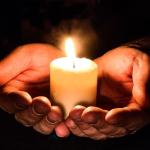Each month ELCA Worship highlights resources and events from other organizations and institutions. These Lutheran and ecumenical partner organizations work alongside the ELCA to support worship leaders, worship planners, musicians, and all who care about the worship of the church.
An ecumenical conference on liturgical renewal for the church today.
Rites of Passage: Engaging Occasional Practitioners in a Secular Age
Valparaiso, Ind.
April 28–30, 2025
Registration is open! Register before Jan. 31 for the early bird discount to receive $100 off your registration fee.
The American religious landscape is characterized by declining participation in religious institutions, increasing uncertainty about matters of faith, and a growing population identifying as non-religious. Nevertheless, many people continue to turn to churches at some of the most significant moments in their lives—such as the birth of a child or the loss of a loved one—and many others show up to support them.
At last year’s Institute, Rev. Dr. Sarah Kathleen Johnson introduced the idea of occasional religious practice to describe a way of relating to religion that is characterized by participation in religious practices occasionally rather than routinely, most often in connection with certain types of occasions, including holidays, life transitions, and times of crisis. She encouraged us not to rush to judge occasional practitioners’ lack of involvement or to come to hasty conclusions about why they are seeking out these practices but instead to listen to and learn from them.
Most of our planning resources are directed at the Sunday assembly. Yet, baptisms, weddings, and funerals are liturgical events rich in their potential for service and outreach. How might we more fully consider the possibilities of these occasions to be better prepared to serve a decreasingly churched culture?
Sign up for our monthly newsletter to stay up to date on the 2025 conference.
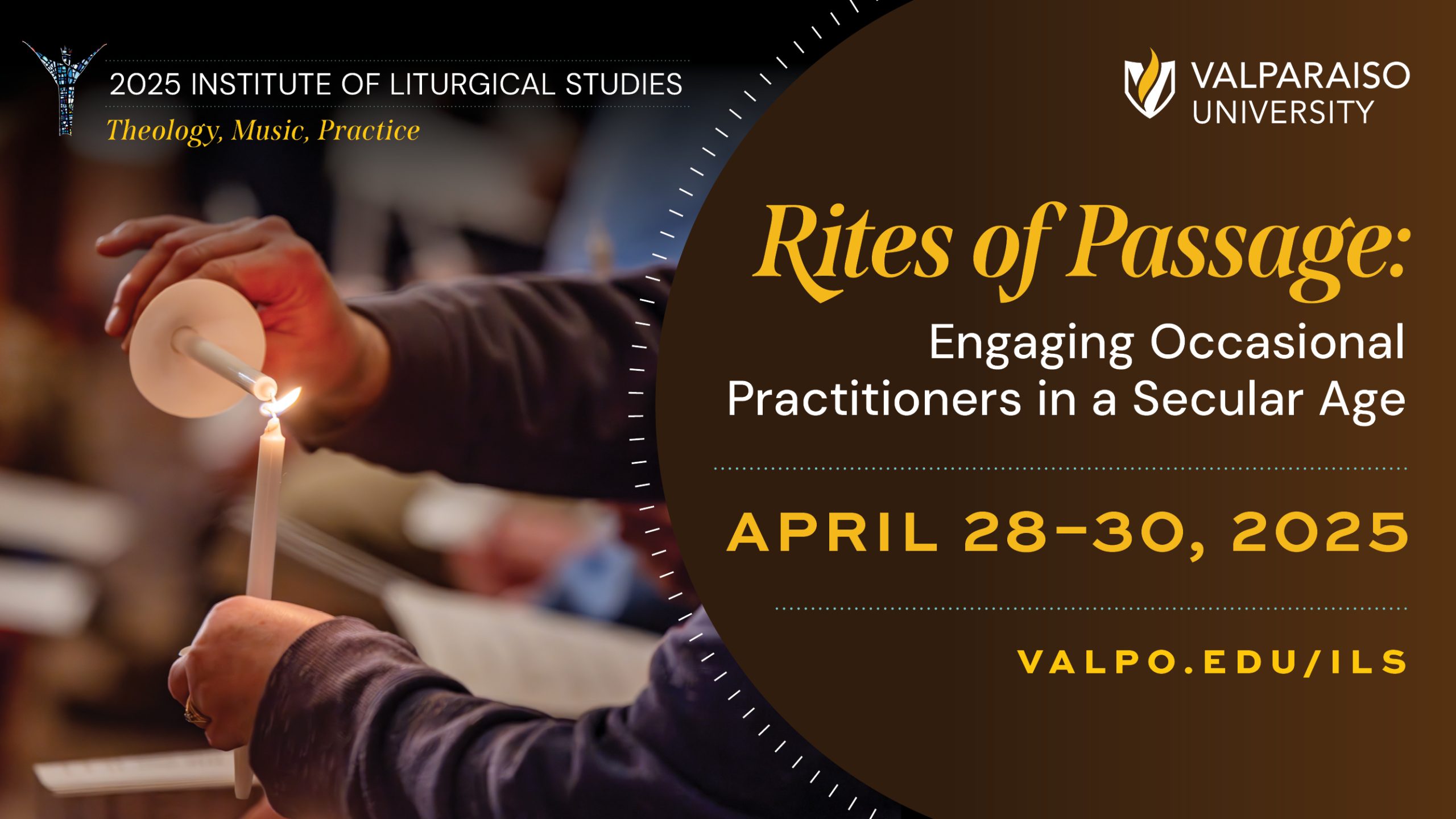
Transforming and connecting lives through faith and music since 1981.
Nominate a Young Musician
Enrollment is filling fast for the LSM 2025! Students come together in an immersive musical community that connects the pursuit of musical growth with the joy of Lutheran church music traditions. LSM welcomes musicians of all kinds: brass, woodwinds, strings, percussion, piano, organ, voice, harp, guitar, handbells, and more. Know a young person (grades 8-12) who would benefit from this life-giving and joyful musical community? Nominate them for LSM today at LSMacademy.org/nominate. LSM 2025 takes place at Valparaiso University from June 22-July 20 (Half Session through July 6). Standard Enrollment is open now through March 1.

Rooted in Christian contemplative and activist traditions, Music That Makes Community envisions a liberative culture that empowers individuals and communities to claim and use the power of singing to heal our spirits, nurture our common lives, and work for justice. We offer resources, training, and encouragement to individuals, organizations, and communities in the dynamic power of singing to connect others and ourselves.
Training Events – Join us for the following events for continuing education, community building, professional development, and celebrating this practice of paperless communal song-sharing.
More in-person events near Kansas City, Detroit, Lexington (KY), Raleigh (NC), Atlanta are being planned. Please stay tuned!
Monday Morning Grounding – This weekly online touchstone continues to offer song, silence, sacred text, and community connection. Mondays at 10 a.m. Eastern / 7 a.m. Pacific until April 7, 2025. Register for the zoom link here.
Resources – Read the MMC blog for articles about …
There are also new Job Postings (including one ELCA) on our website.
Please join our monthly newsletter for regular updates and we’ll see you at an event soon!
ALCM nurtures and equips musicians to serve and lead the church’s song.
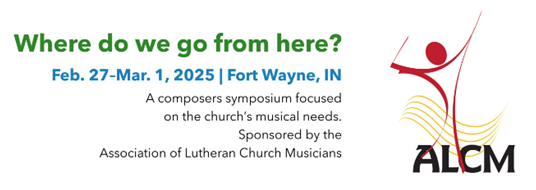
ALCM is excited to offer a composers symposium, Where Do We Go from Here, to stimulate conversation among composers regarding our efforts to be faithful, creative, and nurturing stewards of the church’s song – even where gatherings have limited human and material resources. Registrants will also have the opportunity to explore newer music software. For a more detailed look, visit the symposium website. More information is added regularly, so check back often for more.
ALCM is especially grateful to the hosts for this symposium, Bob Hobby and Trinity English Lutheran Church. Generous donations from the Fred Jackisch Memorial Fund as well as from Trinity English Lutheran have helped to maximize the benefits of attendance while minimizing costs to registrants. Registration rates go up after January 14th. Those who register for both the 2025 Symposium and Raleigh-Durham Conference will receive a $70 dollar refund at the close of the conference.
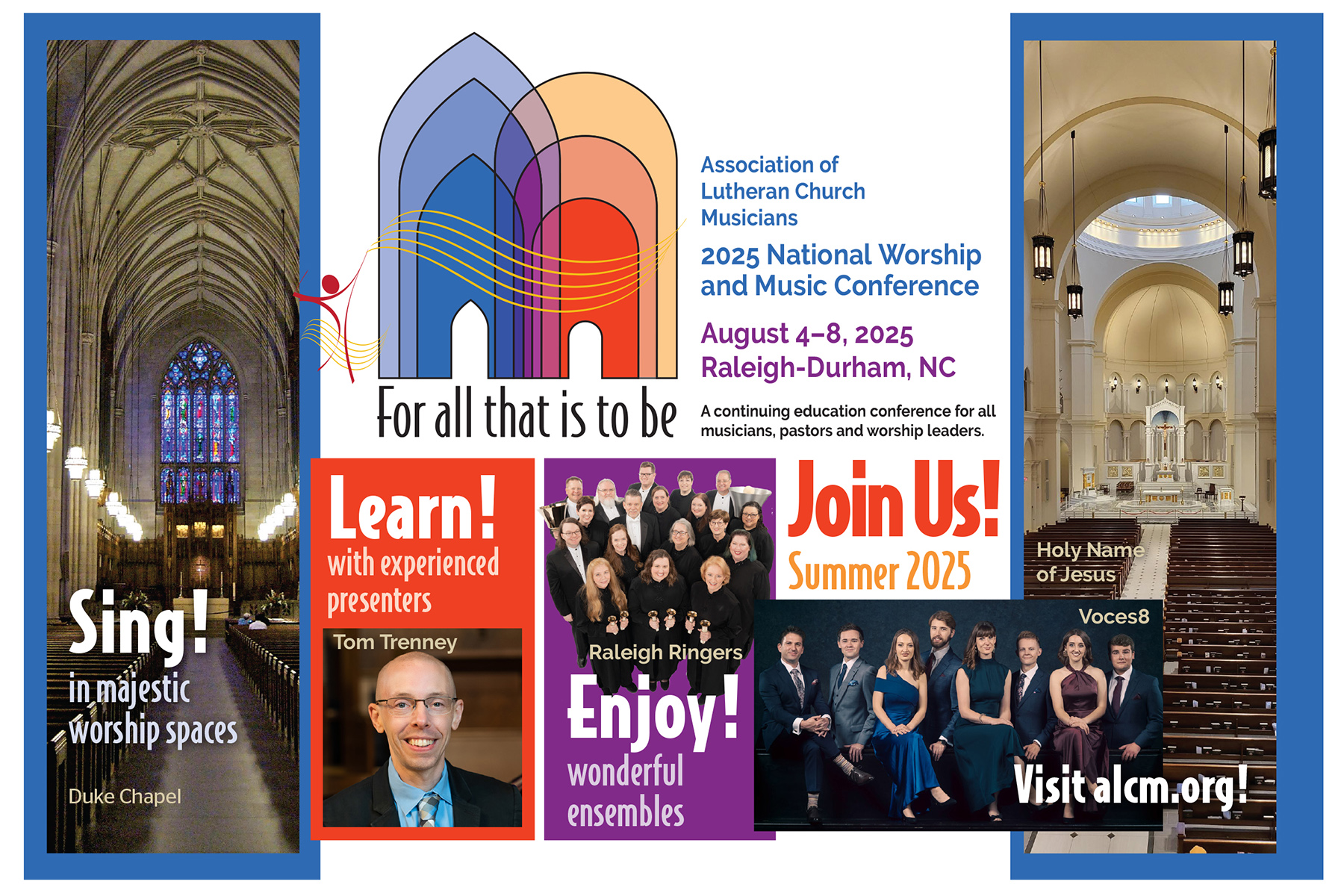
ALCM Conference 2025
Aug. 4-8
Raleigh-Durham, N.C.
The conference theme, For all that is to be, describes our effort to equip people in all stages of their love for music of the church. Whether you are a volunteer, part-time or full-time employed, a student, newly employed, or retired, this conference will nurture your passion for the many ways in which we continue to share the gospel message.
Now is a great time to register and get the best rate. If you get continuing education funds, maybe you have some money left in your budget this year that you can put toward this opportunity. Registration is live – visit the conference website to register now. We look forward to seeing you in Raleigh!
The mission of The Hymn Society in the United States and Canada is to encourage, promote, and enliven congregational singing. The Center for Congregational Song is the resource and programmatic arm of The Hymn Society, connecting resources, leading deep and vital conversations about the church’s song, and collaborating with our partners.
Back in 2020, The Center for Congregational Song hosted a 12-hour broadcast of music and pastoral moments on Election Day in an effort to provide a space for peace in a time of great anxiety. Four years later, the political discourse in the United States is not all that different, and, in some ways, even more charged than it was before. If you find yourself in need of a break from the news, we invite you to recharge by watching our broadcast from four years ago.

The Center for Church Music is a place where one can tap into an expansive library of resources and perspectives on the music and art of the church, with a focus on a Lutheran context.
“Profiles in American Lutheran Church Music” presents video conversations with prominent church musicians “Beyond the Children’s Choir: Focused Experiences for Children in Worship: Emily Woock, Elmhurst Ill., Oct. 2023 and the Rev Paul D. Weber, (interviewed by Barry Bobb, April 2024) as well as many other Lutheran Church musicians.

An ecumenical community seeks to support seekers and those who accompany them. The process is an enlivened journey of spiritual formation for those either exploring Christianity or seeking to renew their faith.
The board of Journey to Baptismal Living, formerly North American Association for the Catechumenate, has been very busy, during and since the pandemic, working on producing updated catechetical and liturgical resources as well as updating our website.
Now we would like to connect with parishes interested in the catechumenal process. If you already have a process, we would like to discuss our new resources and also learn from you about your experiences. If you are interested but not active, we are available to do online training. Our new website can provide you with information about who we are and what we do. Or contact us for further information.

Augsburg Fortress is the publishing ministry of the Evangelical Lutheran Church in America
Daily Bread, Holy Meal: Opening the Gifts of Holy Communion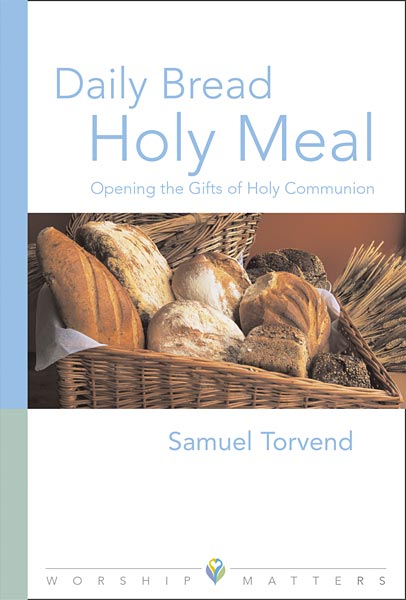
In Daily Bread, Holy Meal, Samuel Torvend invites Christians to reconsider the significance of eating and drinking with Jesus in a world of great need. Drawing on biblical and historical studies, this exploration of the Eucharist asks the seeker in every Christian to consider the ecological, theological, communal, and ethical dimensions of the Lord’s supper. Through a careful weaving of biblical passages, medieval poetry, Luther’s writing, familiar hymns, and liturgical texts, each chapter unfolds another “gift” of Holy Communion and the sometimes–troubling questions each one raises for individuals who live in a fast–food culture yet seek community around a gracious table.
The Music Sourcebooks for Lent and the Three Days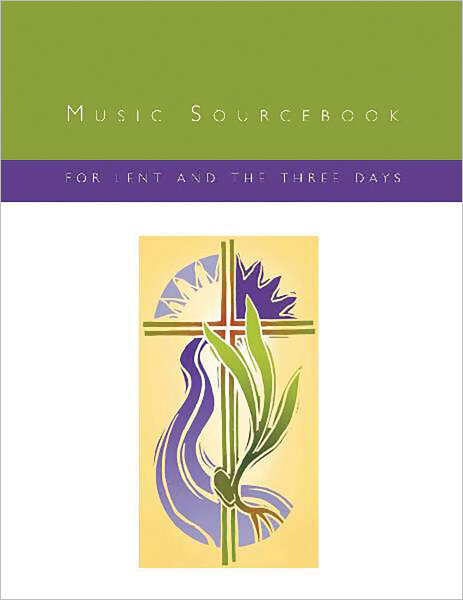
An essential companion resource to the Worship Guidebook, this collection greatly expands the repertoire of resources for the song of the assembly and its leaders during the days from Ash Wednesday to Easter. Most materials are reproducible and newly composed in a broad range of styles. Spiral-bound, includes a CD-ROM with assembly and instrumental parts. Order the Worship Guidebook and the Music Sourcebook as a Set.
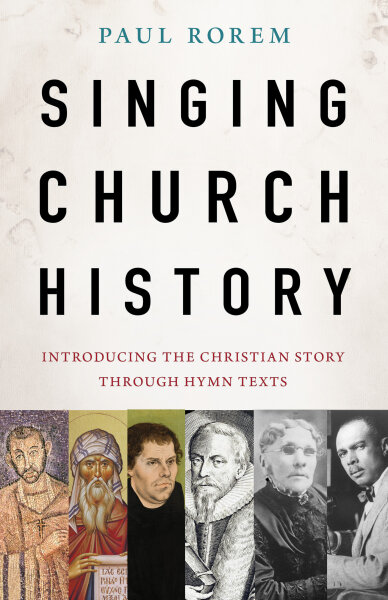 Singing Church History: Introducing the Christian Story through Hymn Texts by Paul Rorem
Singing Church History: Introducing the Christian Story through Hymn Texts by Paul Rorem
Christianity is a “singing church,” with biblical foundations and centuries of examples in the Psalms and canticles, favorite hymns, and gospel songs. And this singing church has a history. Through engaging tales of the stories behind this music and its authors, Rorem makes church history come alive. Singing Church History journeys through an ecumenical history of church music from early and medieval times through the Reformation and the early modern world, into American and World Christianity. Throughout, Rorem shows us how these familiar hymn texts have us “singing church history” on Sunday mornings without even knowing it.
A Different Kind of Fast: Feeding Our True Hungers in Lent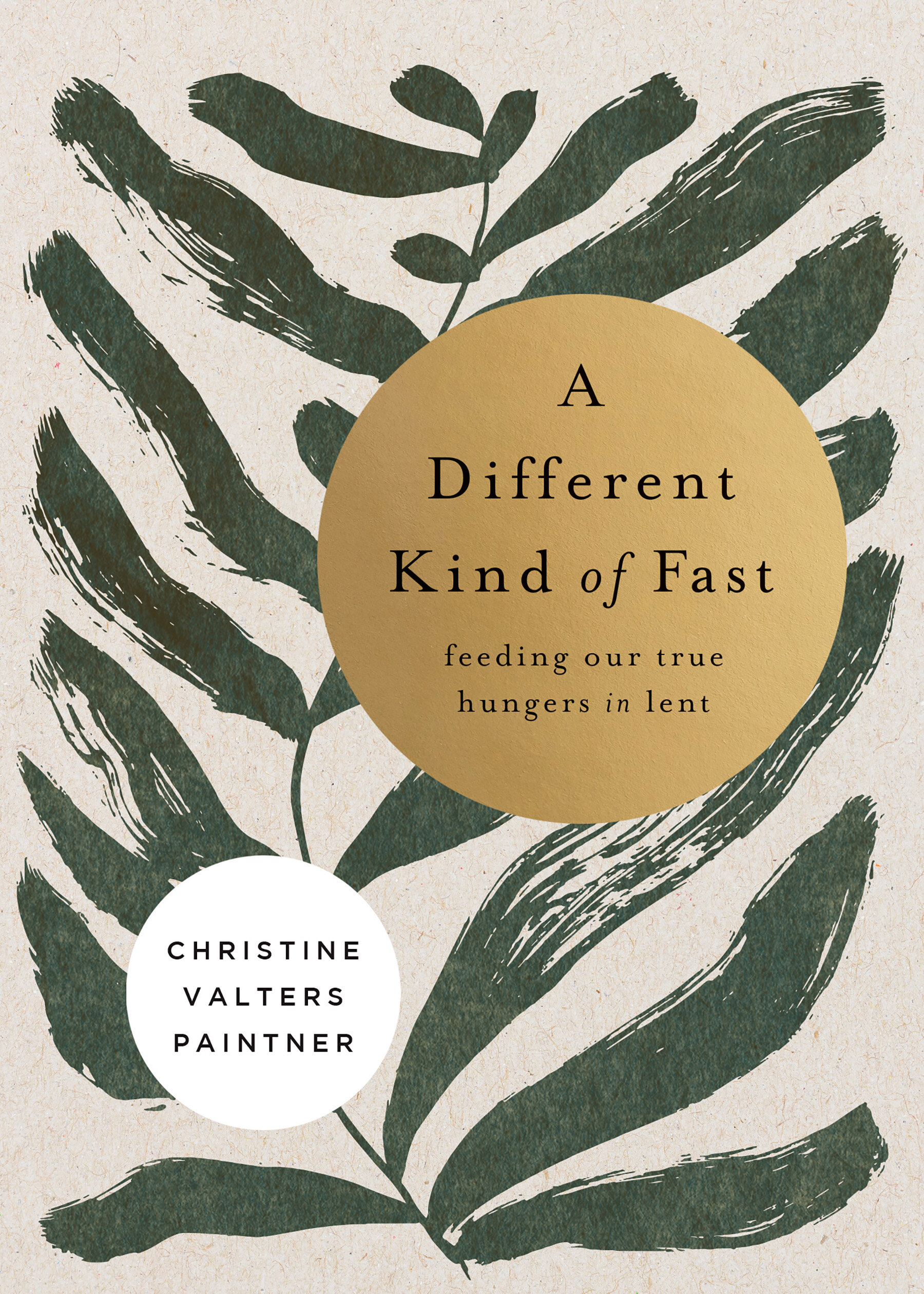
Fasting is not just the physical practice of giving up food. Fasting can also be a way to combat our culture of endless distractions and busyness. Fasting is an act of letting go, of making more internal space to listen to the sacred whispers of our lives. Join Christine Valters Paintner on a spiritual journey through seven different kinds of fasts, including fasting from control, from our attachments, from our grasping, and more. Perfect for Lent, or any period when a deeper intention to clarify your true hunger is needed, this book helps us enter our hearts, stripping away old patterns and habits.
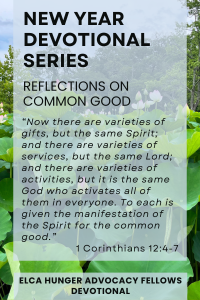
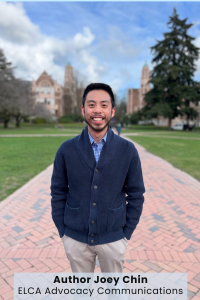 A remarkably powerful windstorm known as a bomb cyclone devastated parts of the Pacific Northwest and Northern California about a week before Thanksgiving this past year. As I saw videos on the news of trees falling and power lines collapsing in the area I call home, I contacted family and friends to see if they were safe. Many people I knew were without power for almost a week but thankfully did not experience anything worse. Nevertheless, many homes, families and communities had to contend with the irreversible damage of the powerful storm.
A remarkably powerful windstorm known as a bomb cyclone devastated parts of the Pacific Northwest and Northern California about a week before Thanksgiving this past year. As I saw videos on the news of trees falling and power lines collapsing in the area I call home, I contacted family and friends to see if they were safe. Many people I knew were without power for almost a week but thankfully did not experience anything worse. Nevertheless, many homes, families and communities had to contend with the irreversible damage of the powerful storm.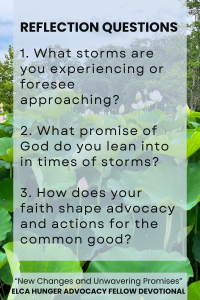 meetings with a staffer from Washington state. During our time together, a few of us discussed the recent effects of the cyclone. The staffer asked how our families were doing and listened to us describe the ways in which climate change has affected our local and global communities. Everyone shared their invaluable insights, and we ended the meeting in prayer.
meetings with a staffer from Washington state. During our time together, a few of us discussed the recent effects of the cyclone. The staffer asked how our families were doing and listened to us describe the ways in which climate change has affected our local and global communities. Everyone shared their invaluable insights, and we ended the meeting in prayer.












 Singing Church History: Introducing the Christian Story through Hymn Texts by Paul Rorem
Singing Church History: Introducing the Christian Story through Hymn Texts by Paul Rorem 
